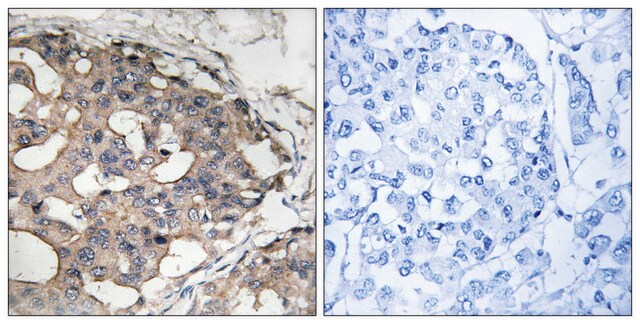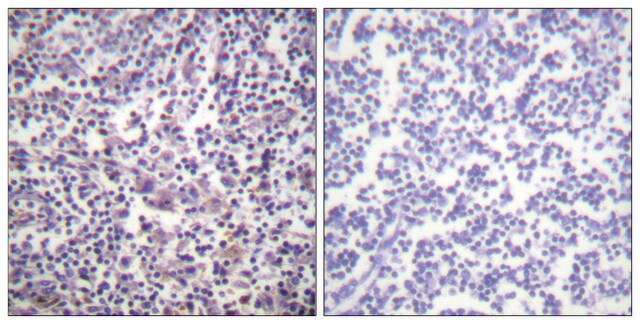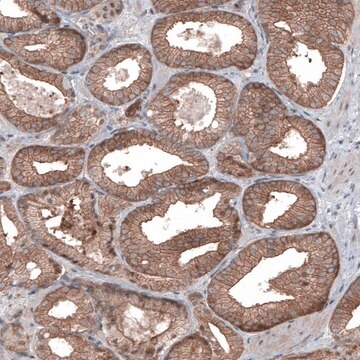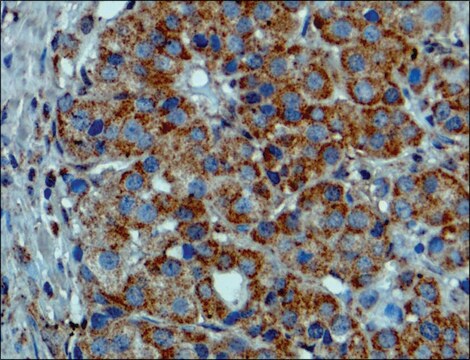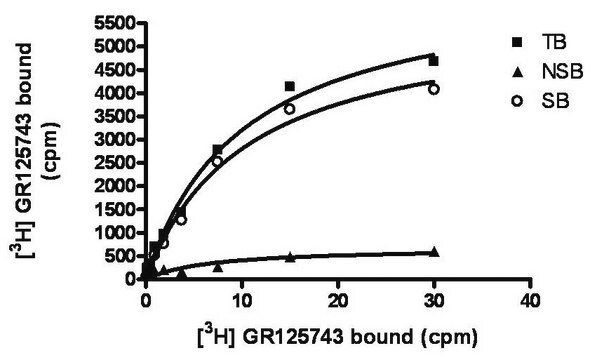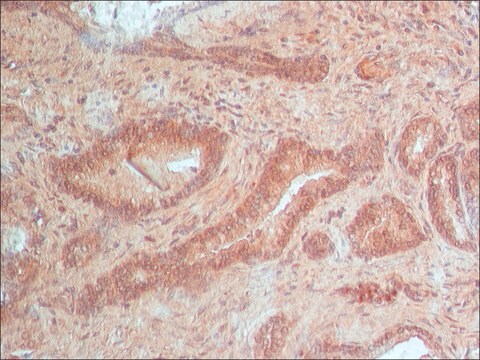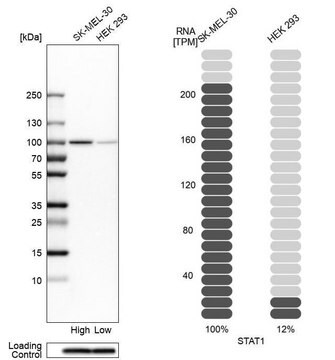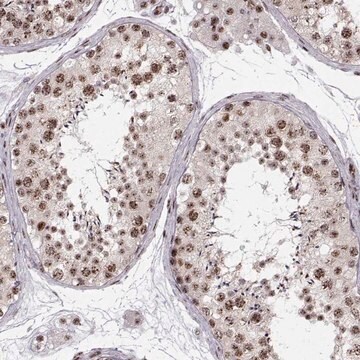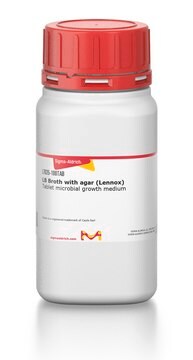07-453
Anti-B-Raf Antibody
Upstate®, from rabbit
Synonym(e):
Anti-B-RAF1, Anti-B-raf, Anti-BRAF-1, Anti-BRAF1, Anti-NS7, Anti-RAFB1
About This Item
Empfohlene Produkte
Biologische Quelle
rabbit
Qualitätsniveau
Antikörperform
purified immunoglobulin
Antikörper-Produkttyp
primary antibodies
Klon
polyclonal
Speziesreaktivität
human, rat, mouse
Hersteller/Markenname
Upstate®
Methode(n)
immunoprecipitation (IP): suitable
western blot: suitable
Isotyp
IgG
NCBI-Hinterlegungsnummer
UniProt-Hinterlegungsnummer
Versandbedingung
dry ice
Posttranslationale Modifikation Target
unmodified
Angaben zum Gen
human ... BRAF(673)
mouse ... Braf(109880)
rat ... Rasd1(64455)
Spezifität
Immunogen
Anwendung
Zelluläre Signaltransduktion
MAP-Kinasen
Qualität
Zielbeschreibung
Verlinkung
Physikalische Form
Lagerung und Haltbarkeit
Rechtliche Hinweise
Haftungsausschluss
Sie haben nicht das passende Produkt gefunden?
Probieren Sie unser Produkt-Auswahlhilfe. aus.
Lagerklassenschlüssel
10 - Combustible liquids
WGK
WGK 2
Analysenzertifikate (COA)
Suchen Sie nach Analysenzertifikate (COA), indem Sie die Lot-/Chargennummer des Produkts eingeben. Lot- und Chargennummern sind auf dem Produktetikett hinter den Wörtern ‘Lot’ oder ‘Batch’ (Lot oder Charge) zu finden.
Besitzen Sie dieses Produkt bereits?
In der Dokumentenbibliothek finden Sie die Dokumentation zu den Produkten, die Sie kürzlich erworben haben.
Unser Team von Wissenschaftlern verfügt über Erfahrung in allen Forschungsbereichen einschließlich Life Science, Materialwissenschaften, chemischer Synthese, Chromatographie, Analytik und vielen mehr..
Setzen Sie sich mit dem technischen Dienst in Verbindung.